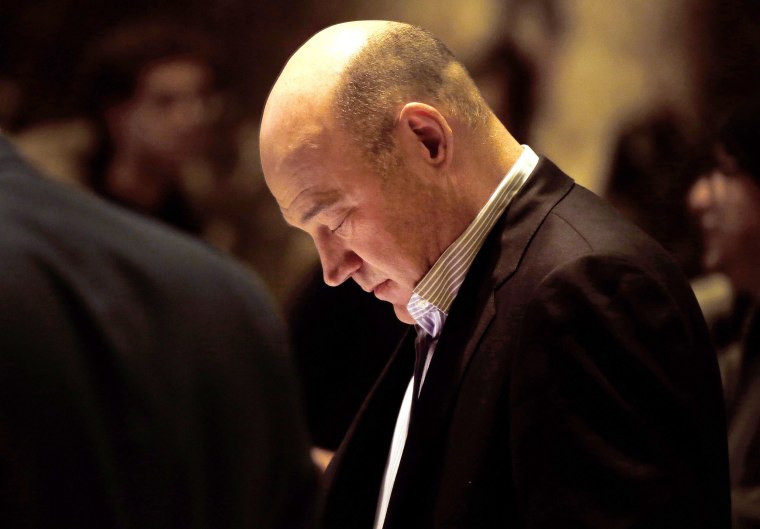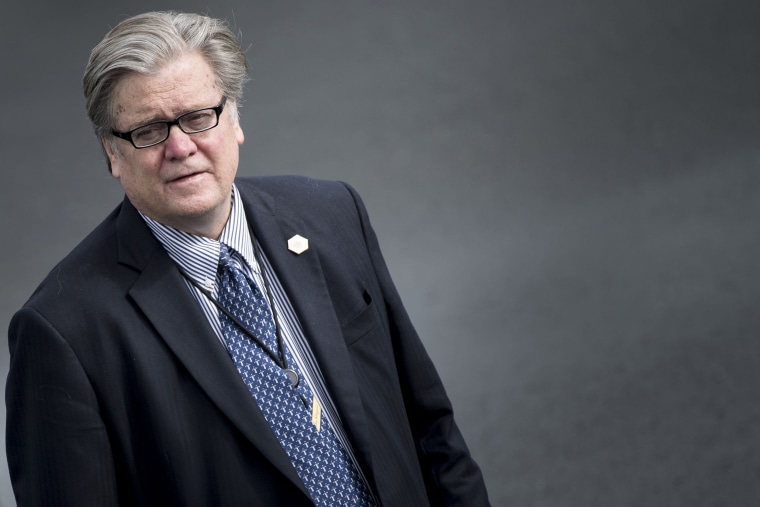WASHINGTON — The Big Six tax reform group has been meeting for months, but Tuesday's scheduled talk with the president at the White House is intended to put the focus back on a crucial Republican priority as Congress returns after its August break.
Just don’t expect what comes out of the gathering of key players — Speaker Paul Ryan, Ways and Means Committee Chairman Kevin Brady, Senate Majority Leader Mitch McConnell, Sen. Orrin Hatch, along with White House advisers Treasury Secretary Steve Mnuchin and Gary Cohn — to be revelatory from a policy standpoint.
Instead, it’s more about messaging.
"Optically, it shows we’re back at this," according to one person involved in the tax reform strategy, and it puts President Donald Trump in the room with the key players to talk about the path forward.
Still, on a day when DACA is likely to suck all the oxygen out of the political atmosphere as Trump announces his decision on the "Dreamers," even insiders acknowledge that Wednesday — and the president’s planned trip to North Dakota — will provide a second and better opportunity this week to put tax reform center stage.
A possible monkey wrench: Steve Bannon and the Breitbart base. Multiple sources familiar with the Bannon/Breitbart strategy say they're gearing up for the long-expected battle against those who they deride as the "globalists" in the West Wing — and that the decision has been made to go after "one globalist at a time."

First on the hit list? Gary Cohn.
And who’s key on the tax reform push? Gary Cohn.
A source said Bannon and Rep. Mark Meadows, R-N.C., of the House Freedom Caucus met Sunday to discuss the fall agenda.
A source familiar with the discussion said part of their dialogue focused on the idea that the GOP should brace for a "bloody September," as the president's far-right base prepares to dig in on key issues from DACA to the debt ceiling.
It’s being described as a fight between the "grass roots versus leadership" to support Trump's program.
Bannon is preparing for major strategic discussions with leadership of the entire conservative movement this week.
Among those working on tax reform, there's an acknowledgement that a backlash from the Trump base could be problematic if the overhaul is not perceived as populist — that's why you’re hearing so much Trumpian language about ways to "unrig the economy."
And it's notable that Cohn, director of the National Economic Council and Trump's chief economic adviser, has not been the public face of tax reform lately — perhaps a way to insulate the administration from accusations that its plan is too "globalist." Messaging is not really the NEC's bailiwick anyway, and it might stay that way if Breitbart unleashes more on Cohn.
And while the souring relationship between Cohn and the president is no secret, one person familiar with the tax reform strategy downplayed any idea that the infighting could be problematic — but acknowledged it’s obviously better if the two aren’t fighting in public. Cohn raised eyebrows last month with an interview he gave to The Financial Times in which he said, in reference to the violence in Charlottesville and in what was regarded as a slam on Trump, that the administration needed to do a better job of condemning white supremacists.
One crucial part of the tax reform push: lessons learned from health care.
Those working on tax reform acknowledge the "difficult balance" of needing a buy-in from Republicans in Congress on the front end for things like changing tax rates — but without dictating from on high to lawmakers (particularly to members of the House Ways and Means Committee, who’ve been working on this for a long time, and to senators, who may have their own political calculus to make).
White House aides are cognizant of ensuring lawmakers have the opportunity to fill in the details. One potential sticking point for the Big Six: how to pay for some of the tax cuts they'd like to see. They don’t want one piece of the plan floated and then demolished by outside interests mobilizing against it even before a comprehensive bill has been put forward.
Trump also needs to be invested in the drive for tax reform. It’ll be a red flag if he again begins to put distance between himself and the plan — like he did with health care. The president is expected to get on the road more to sell the tax push (although that was supposed to happen with the health care bill, too).
But the difference now? A new chief of staff, John Kelly, and a more structured process in place when it comes to managing the president’s schedule.
CORRECTION (Sept. 4, 2017, 9:38 a.m.): An earlier version of this article misidentified a congressman on the Big Six tax reform group. The representative is Kevin Brady, R-Texas, not Kevin McCarthy, R-Calif.


